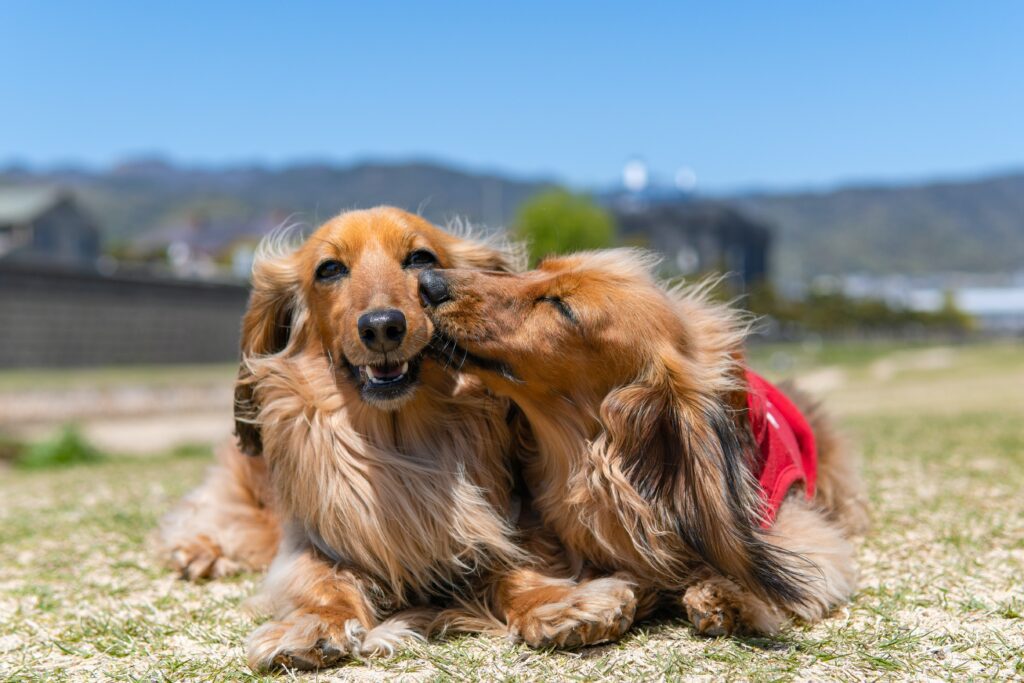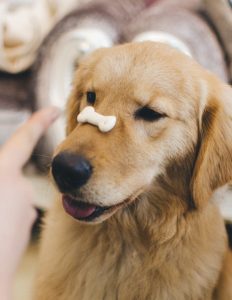Need help with Reactive Dog Behaviour? Join my FREE Facebook support group...
Unleashing the Instincts: Practicing Hunting and Fighting Through Play
Playtime serves a crucial role in a dog’s life, not only for exercise and bonding but also for tapping into their doggy instincts. Here’s how practicing hunting and fighting behaviors through play can reduce anxiety, satisfy their instincts, lead to contentment, and enhance the overall well-being of your dog.
Just like us, dogs have natural hunting and fighting instincts that can be channeled through play. Humans express this by taking up sports that appeal to our talents and interests. If you ever watch the Olympics, you’ll see a range of hunting and fighting behaviours, often practised at a high skill level!
Practising these instinctive behaviours, at some level, is important for all of our mental health. It’s no surprise that people get addicted to exercise, or games. We naturally crave physical challenges and problem solving activities, and we feel really good when we participate.
Anxiety and play!
Anxiety produces adrenaline, and adrenaline is countered by exercise! When a dog becomes anxious, adrenaline is produced. This prepares the body for fight or flight. Naturally, our dogs bodies are designed to get stressed when they are physically threatened or one of their needs is threatened – such as hunger, safety, or mating.
Our dogs lives have changed a lot since their ancestors lived in wild packs and hunted for food. But their brains and bodies haven’t. So resources such as blood flow and oxygen are still re-directed when adrenaline is triggered, to make them stronger and faster while they deal with the problem.
Adrenaline makes them good hunters and fighters. But once the fight is over, it’s not needed anymore, so a signal is sent to switch it off. Not only that, but once adrenaline subsides the body releases endorphins which make us feel good, relieve pain, and trigger a restful state. All of this is designed to help our bodies recover from the fight, repair any injuries, and settle down for a nap or meal! The restful state, also called rest and digest, turns on digestion!

Without play
Without hunting and fighting play, the body is continually ready and anxiety builds. Imagine being ready for a fight all day long, but having to sit still and quiet. All that adrenaline has to go somewhere.
Without the right outlet, it can look like frustrated, reactive, or hyperactive behaviour. Your wrestler may try to engage you in energetic and dangerous play. Or your terrier might try to dig in the carpet, or chew up their bed. Your scent tracker may wonder off into the woods, or guard their food. And your stalk and pouncer might guard lights and shadows.
So, it’s easy to see how practising hunting and fighting through play keeps dogs calm, content and happy!
How dogs play!
Every dog is different in their needs and preferences. Just like some of us prefer to play chess over football, or to wrestle over throwing a javelin. Our dogs have different preferences and skills too. We’ve amplified these instincts over the years for our own benefit. Through careful breeding, we’ve focused on improving key hunting and fighting skills. Of course, we no longer use our pet dogs for these purposes. So it is more important than ever to provide an outlet for these instinctive behaviours.
Typically terriers like to “kill” their toys. They will shake and tear at their toys until the squeaking stops and then they’ll enjoy tearing it apart. They also love a good game of tug!
Collies like to stalk and chase. If you see a collie laying in wait and pouncing on another dog in the park, he’s probably just playing. And spaniels prefer to range our to search and forage.
For the thrill of the fight, boxers and other bully breeds are brilliant wrestlers! Given the chance, they would give the WWF a run for their money as they throw each other about. Pinning each other to the ground and grabbing at each other can look menacing, but it’s all part of the act. The only thing missing is a referee to declare the winner!
When’s playtime?
So we can see how important it is to hunt and fight through play. If you aren’t sure what your pup loves, experiment with a range of different toys, activities, and puzzles. They will gravitate towards their favourite. Then you just have to make sure you never run out of opportunities.
If they love to shred their toys then find safe toys to shred. If they prefer to tug on ropes, then stock up. Or if they love to search and track then join a scent training club. Or, for the play fighters, you’ll need some regular play-fighting friends to meet up with.
Whatever it is, build time into your routine to “hunt or fight” together. Remember, it’s even more fun when you do it together!
What kinds of games does your pup like to play?
Are you struggling with your dogs behaviour?
Private Dog Behaviour Consultations are currently available in the greater Dundee area and beyond. If you are looking for help solving your dogs behaviour and training problems, then please get in touch!


